Publications
Articles, publications, books, tools and multimedia features from the U.S. Institute of Peace provide the latest news, analysis, research findings, practitioner guides and reports, all related to the conflict zones and issues that are at the center of the Institute’s work to prevent and reduce violent conflict.
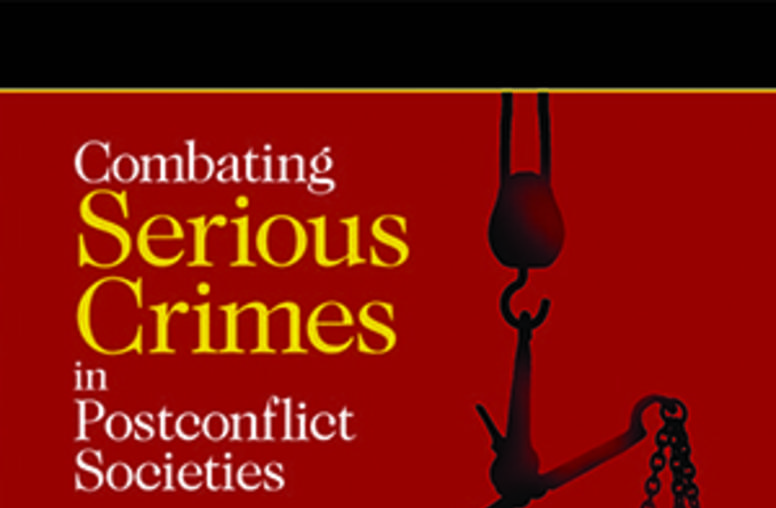
Combating Serious Crimes in Postconflict Societies
The Serious Crimes handbook is a reference tool for policymakers and practitioners who are designing strategies for tackling serious crimes in postconflict environments.
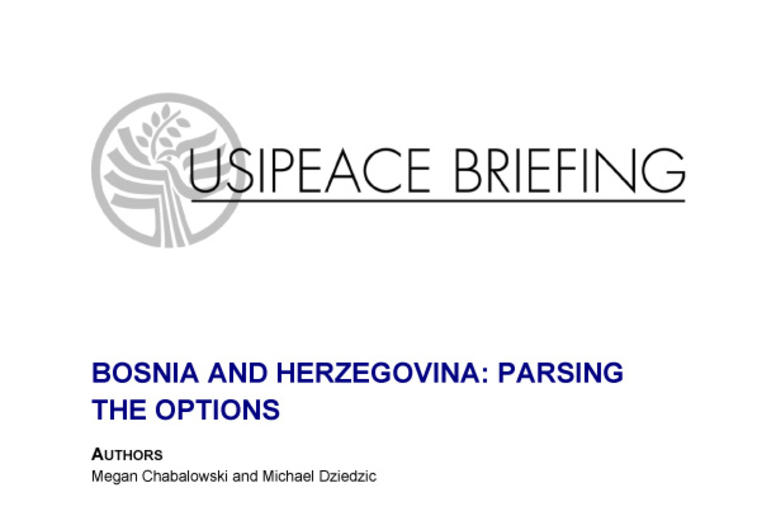
Bosnia and Herzegovina
USIP assesses several policy prescriptions and the areas of disagreement and agreement of how the international community and the region itself should address the problems in the struggling country.
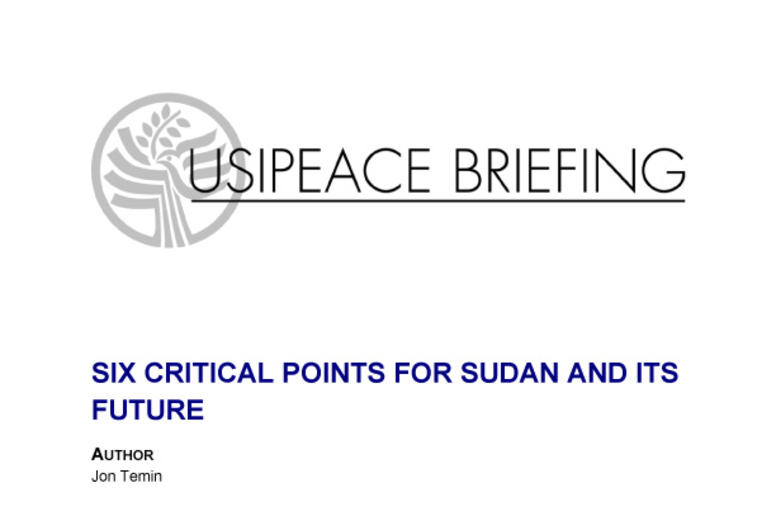
Six Important Issues for Sudan and Its Future
Most international attention devoted to Sudan has focused on the nationwide elections and the 2011 referendum on the status of southern Sudan. Yet, there are other aspects of the north-south dynamic deserving of discussion and strategic thinking that don't receive their due. In a new Peace Brief, USIP's Jon Temin examines six important issues and questions that require more consideration as the decisive events in Sudan’s political history approach.
Reinforcing Treasury’s Strategic Roles in International Affairs and National Security
Amid the global financial crisis, USIP explores the Treasury Department's current functions and resources as a foundation to more effectively strengthen financial institutions and combat illicit finance in non G-20 countries. USIP's Jeremy Pam describes how the Treasury Department might be better organized to play a greater strategic role in international affairs that addresses financial crises in developing countries and, in doing so, serves U.S. national security interests.
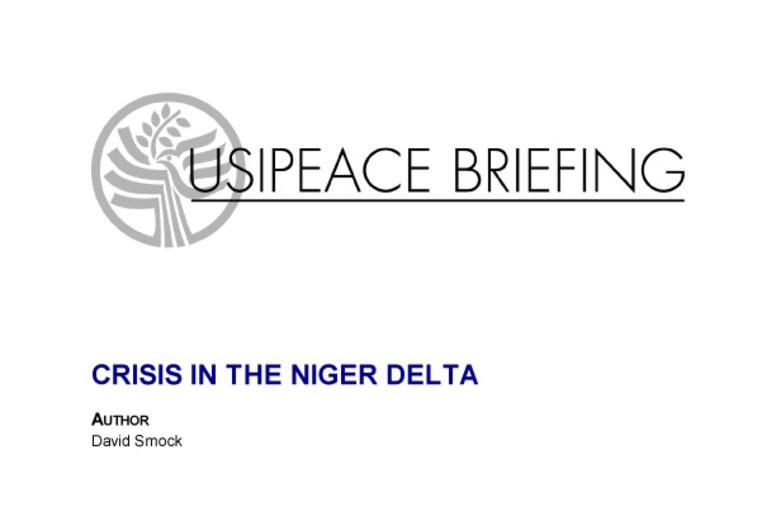
Crisis in the Niger Delta
USIP's David Smock explores the factors underlying and perpetuating the militancy in the oil-rich Niger Delta region of Nigeria. In this report, based on an 11-day trip to Nigeria in late August 2009, Smock analyzes the prospects for the amnesty process, and why stronger political processes and economic development could help address the roots of the conflict there.
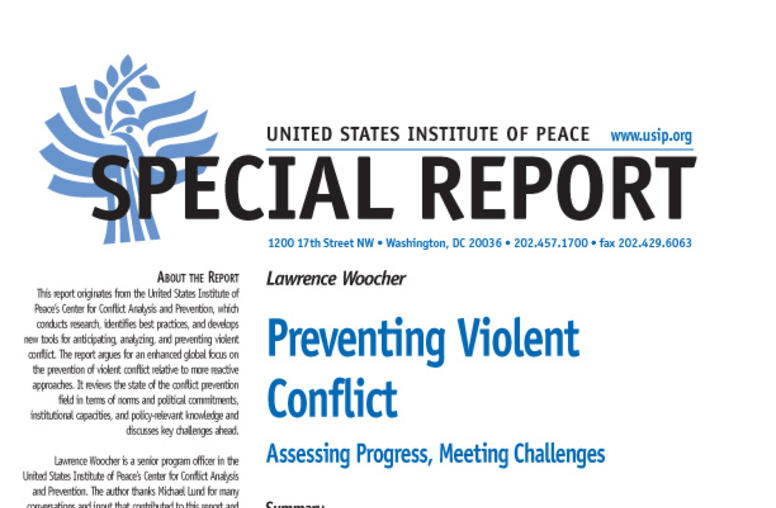
Preventing Violent Conflict
How well does the international community work to prevent the outbreak of new wars? In a special report, "Preventing Violent Conflict: Assessing Progress, Meeting Challenges," USIP's Lawrence Woocher examines the current status of conflict prevention as an international norm and argues for enhanced global attention on conflict prevention strategy relative to more reactive responses, such as post-conflict rebuilding and resolving existing conflicts.
World Recognizes International Day of Peace
To honor this worldwide event, USIP presents some highlights of peacebuilding around the world in 2011.
Post-Conflict Health Reconstruction:
A new USIP report examines how improving health systems in post-conflict countries can help promote peace and prevent renewed violence in those nations. In "Post-Conflict Health Reconstruction: New Foundations for a U.S. Policy," USIP fellow Leonard Rubenstein looks at health indicators in various hotspots around the world, and why addressing dire health situations can help advance peace and resolve conflicts, as well as boost the U.S's image abroad.
Strengthening the Rule of Law in Iraq
The Rule of Law Center works closely with Iraqi judges, parliamentarians, government officials and civil society to strengthen the rule of law in Iraq by addressing the property rights of IDPs, strengthening the Iraqi judiciary, clarifying the relationship between the central and provincial governments, and protecting minority rights.
1998-1999 National Winning Essay
Jean Marie Hicks St. Thomas More High School Rapid City, SD “Too little, too late” often in the prevention of violent conflicts holds true (Peck). When the roots of the problem are not identified in time, violence becomes the solution. Preventive diplomacy, one way of avoiding conflicts, can be defined as “action to prevent disputes from arising among parties to prevent existing disputes from escalating into conflicts, and to limit the spread of the latter when they occur” (Boutros-Ghal...